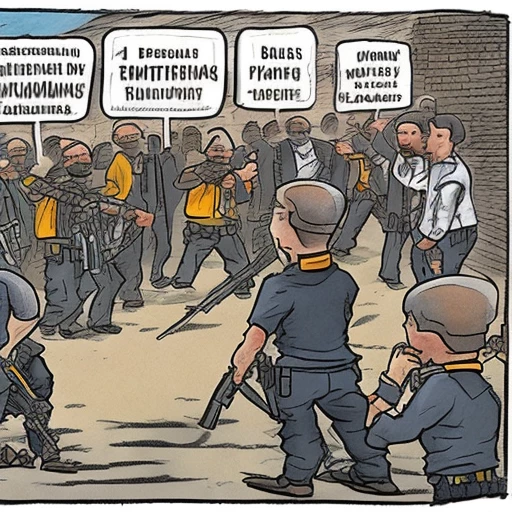Terrorism and Thugs
The article, "Terrorism and Thugs" discusses the concept of "thugs" in relation to their behavior, which shares some similarities with the Syrian militias bearing the same name.
The term "thugs" has been used by Syrians for several decades, originally describing individuals from the Assad family who engaged in illegal activities like arms, drugs, and tobacco smuggling. They were known for driving the black Mercedes S600 with tinted windows, which earned the nickname "the ghost." From this, the term "thugs" or "shabiha" emerged to refer to criminal gangs enjoying the protection of the state and its security apparatus, operating their mafia-like activities with impunity. (Source: Wikipedia)
In my understanding, "thugs" can also refer to harm inflicted upon individuals or groups by an unknown source in various places or situations, with reasons often undisclosed.
Reasons for Thuggery:
1. Revenge
2. Intimidation
3. Control
4. Organizational conflicts
5. Extortion
6. Influencing behavior indirectly
7. Psychological and mental disorders
Forms of Thuggery:
1. Spreading rumors
2. Inciting chaos and vandalism
3. Rejection and exclusion
4. Surveillance and stalking
5. Social media usage for defamation, bullying, and negative comments
6. Disrupting projects and services
7. Violating privacy
8. Illegally seizing others' properties
9. Manipulating health and financial data
10. Using government and private organizations to harm others
11. Employing body language, gestures, or insinuations for extortion, disdain, or intimidation
12. Physical and verbal violence
Expected Consequences:
1. Security failures
2. Some groups' behavior being classified as state terrorism
3. Violation of laws
4. Capital and intellectual flight abroad
5. Growing hatred and animosity towards organizations and their employees
6. Loss of credibility, even in government warnings during emergencies or disasters
7. Psychological, social, and familial problems
8. Failures in public and private projects and goals
9. Financial and human losses
Recommendations:
1. Raise awareness among students, employees, and leaders in universities and workplaces to refrain from joining such criminal groups and adopting their behaviour.
2. Clearly define employees' professional authorities and limitations that cannot be exceeded.
3. Parents' role in educating and warning their children to avoid criminal gangs.
4. Implement strict punitive measures.
5. Public shaming as a powerful deterrent mechanism.







-tiny.webp)